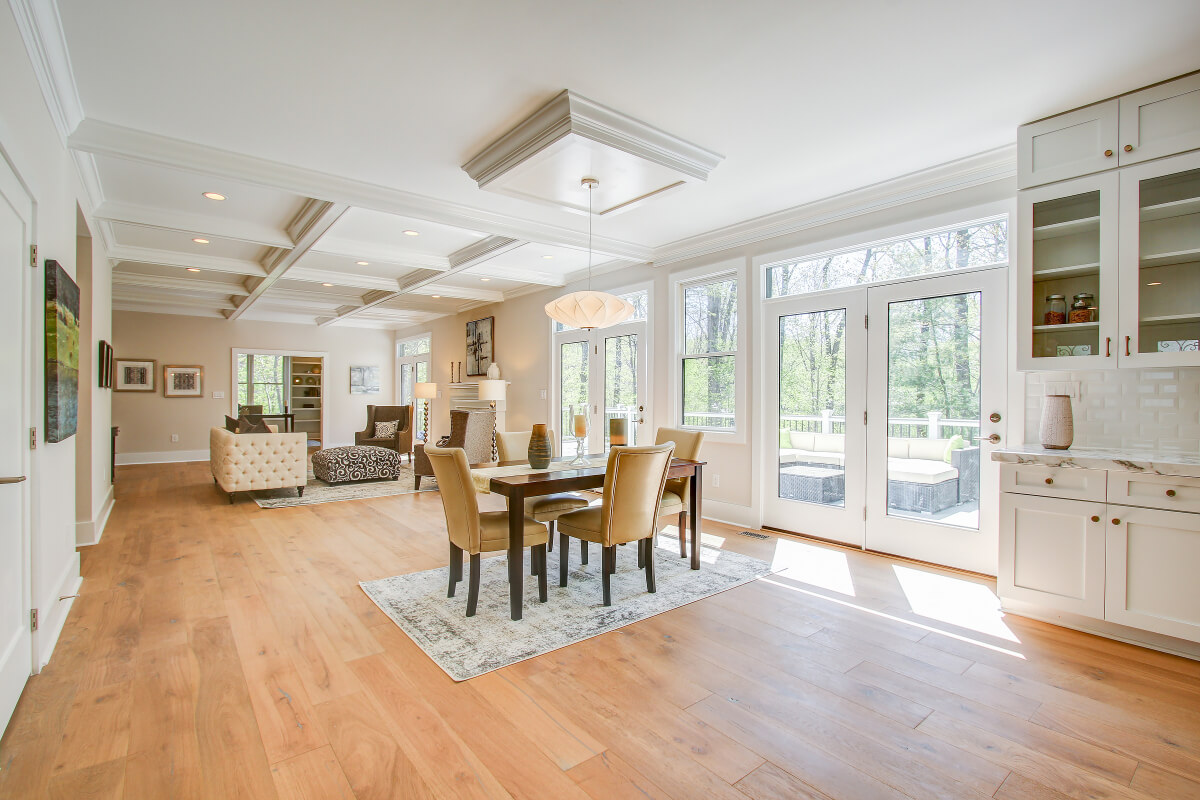Differences Between Vinyl and Hardwood Floors
- Published By: District Floor Depot
5/5

Share on Facebook
Share on Pinterest
Share on Linkedin
Share on Twitter
Share via Email
Are you looking to install new flooring in your home? Two of the more popular options are hardwood and vinyl floors. The former consists of solid, natural wood, with oak or maple being the most common materials. The latter is a synthetic rubberized plastic product made from polyvinyl chloride (PVC) and textured to create the desired look. Both materials have advantages and disadvantages, so it’s up to you to decide which one is a better fit for you.
Vinyl Floors vs. Hardwood Floors
Understanding the many difference between vinyl and hardwood flooring can help you make your choice. Consider the following factors:- Cost: One of the biggest benefits of vinyl floors is the lower cost and being waterproof. Vinyl flooring is available in sheets, tiles or planks, with sheeting being the least expensive. Hardwood flooring comes at a higher price, and what you pay can vary depending on the wood type. For families on a tight budget or very active lifestyle, vinyl is likely the more practical solution.
- Installation: Vinyl flooring is easier to install than hardwood. It’s possible to place vinyl over concrete, wood or just about any existing surface. Many of today’s Vinyl tiles and planks have a click and lock mechanism that speeds up and simplifies the installation process, although some products may require gluing. Installing hardwood flooring is more labor-intensive and requires an expansion gap to allow the floorboards to swell and contract due to exposure to moisture. The process can also create dust that infiltrates other areas of the home.
- Appearance: One of the most significant benefits of hardwood floors is the timeless beauty and elegance that only genuine wood can deliver. These materials show the natural grains and hues, which add unmistakable style to any room. Dyed and textured vinyl planks can closely replicate the hardwood appearance, although a close examination can reveal the differences.
- Soundproofing: Because of its rubberized backing, vinyl absorbs sound much better than hardwood. If your household has small children or experiences heavy foot traffic, vinyl can provide a quieter solution. Many of the planks have moisture and sound barrier attached to block noise and moisture transfer.
- Maintenance: Vinyl flooring has fewer maintenance requirements than hardwood. Regular sweeping and mopping can preserve a vinyl floor’s appearance, although most manufacturers recommend using area rugs or runners in high-traffic areas to reduce wear. On the downside, you can’t repair damaged vinyl flooring — replacement is the only remedy. Hardwood flooring typically requires refinishing every 10 years, and you’ll also want to perform spot repairs when needed.
- Durability: Hardwood floors usually last longer than their vinyl counterparts, which can make them a better long-term investment with proper care. They can also increase a home’s resale value. However, you should avoid installing hardwood flooring in bathrooms and other high-moisture areas.
